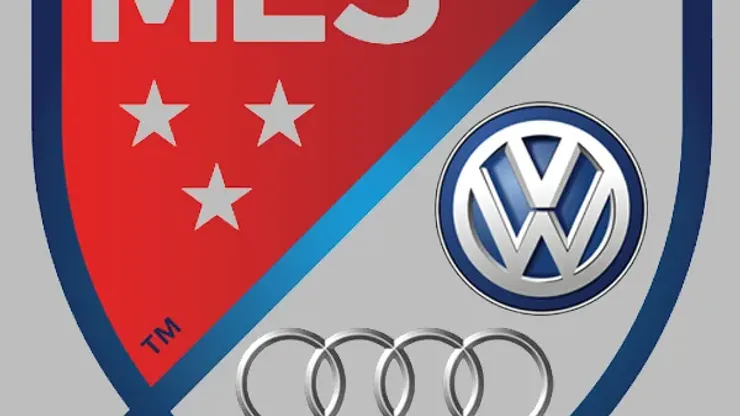
Welcome to the 2015 MLS playoffs, presented by Corporate Cheats Who Give Kids Asthma. Also known as “Audi.”
Though owned by previous longtime Major League Soccer sponsor Volkswagen, the German luxury car brand had pretty much escaped attention after its parent company’s emissions scandal broke in September. You’ll remember that Volkswagen admitted to installing software on 11 million diesel cars that provided misleading results during testing. In reality, the cars belched up to 40 times the legal levels of nitrogen oxide, according to the EPA, which on Monday widened its allegations to include some Audi models.
So now if we’re talking about a “defeat device” in an MLS postseason context, we’re not necessarily referring to the Toronto FC defense. We’re discussing air pollution linked with respiratory diseases, heart and lung problems and smog. A study by Harvard and MIT scientists estimated that VW’s deceit will cause the premature deaths of 59 Americans and $450 million in costs like hospital bills.
MORE MLS: Jason Kreis fired after one year on sidelines with NYCFC.
So, great as these MLS playoffs have been so far, it’s going to be hard for anyone with a conscience to whip up much enthusiasm for plugging Audis. (The company’s slogan is “Truth in Engineering,” which is so ironic it’s almost beautiful.)
None of this is the league’s fault, of course. When it signed a multi-year deal with Audi in March as its Official Automotive Partner and presenting sponsor of the playoffs, it must have seemed like a coup to get such a prestigious automaker on board, one that also backs the likes of Bayern Munich and Real Madrid. Auto companies are no strangers to scandals and class-action lawsuits, but who’d have foreseen something this sneaky?
It’s too late to change anything this year, but it’ll be interesting to see what MLS does in the coming months, only one season into what is, according to Sports Business Daily, a four-year, multi-million dollar agreement. A league spokesman did not provide comment when approached on Monday.
Can a competition that runs a “Don’t Cross The Line” good behavior campaign really continue with a partner that drove so recklessly over ethical boundaries? Or is the public so inured to corporate infiltration of sports that we’ll just shrug off this awkward marriage without viewing the league as tarnished by association?
Hey, whaddya expect from a big multinational? We all know vehicles pollute, but we still drive. Anyway, more money for MLS means a better product on the field, and that’s all I care about. It’s not the league’s job to ensure its sponsors are good corporate citizens.
Maybe we realized that soccer had completely sold out when the real-estate on Barcelona players’ chests went from blank to UNICEF to Qatar-controlled entities in short order. Or when we noticed that the big European leagues are fueled by the financial support of gambling, fast food and beer companies, which at the very least sends mixed messages in a sport that demands and celebrates fitness and clean living.
SEE MORE: Taking inventory of the LA Galaxy’s abrupt exits from MLS’s playoffs.
Everything in moderation, say the sponsors, as they run commercials lauding the uber-passionate, irrational, immoderate behavior of fans. “Try and avoid snacks that are too sugary,” advises the English Football Association’s healthy eating for kids program.
One of the England team’s sponsors? Mars.
Then there’s Gazprom. The Russian gas giants back the UEFA Champions League, Chelsea and Schalke 04 with the slogan “We light up the football.” Gazprom could face massive fines from the European Union, which alleges unfair practices led to hiked prices in Eastern Europe. (The company denies wrongdoing but is seeking a settlement, the Wall St Journal reported.)
Perhaps the tipping point was this summer, when the FIFA crisis was raging yet Sepp Blatter and his cronies were clinging to power, and it genuinely seemed as if the only forces that might be able to prise them out of their roles were the multinational corporations which help make the World Cup so profitable for the governing body. Yes, the soccer world was seeking ethical leadership from Coca-Cola, McDonald’s and Visa.
The ongoing revelations about how the next two World Cups were awarded are only the latest reminder that in Europe, the engine that drives the global game, soccer is a part of the big, bad, corporate world. It’s not something that stands apart, with its own set of higher ethical principles, no matter what it might pretend.
SEE MORE: Giovinco is on track to become the most important player in MLS history.
It’s located at the intersection of entertainment, politics and big business. And that is partly because it embraces money from powerful companies whose only obligations are to their shareholders, whose only interest is an ever-greater return on their investment. And the more money it accepts, the more it spends and the more it needs, like a junkie seeking a fix.
How MLS, and its fans, react to the latest Audi news — or how they don’t — will tell us something about the kind of values this league wants to emit.
200+ Channels With Sports & News
- Starting price: $33/mo. for fubo Latino Package
- Watch Premier League, Liga MX & Copa Libertadores
The New Home of MLS
- Price: $14.99/mo. for MLS Season Pass
- Watch every MLS game including playoffs & Leagues Cup
Many Sports & ESPN Originals
- Price: $10.99/mo. (or get ESPN+, Hulu & Disney+ for $14.99/mo.)
- Features Bundesliga, LaLiga, NWSL, & USL
2,000+ soccer games per year
- Price: $7.99/mo
- Features Champions League, Serie A, Europa League & EFL
175 Premier League Games & PL TV
- Starting price: $7.99/mo. for Peacock Premium
- Watch 175 exclusive EPL games per season
